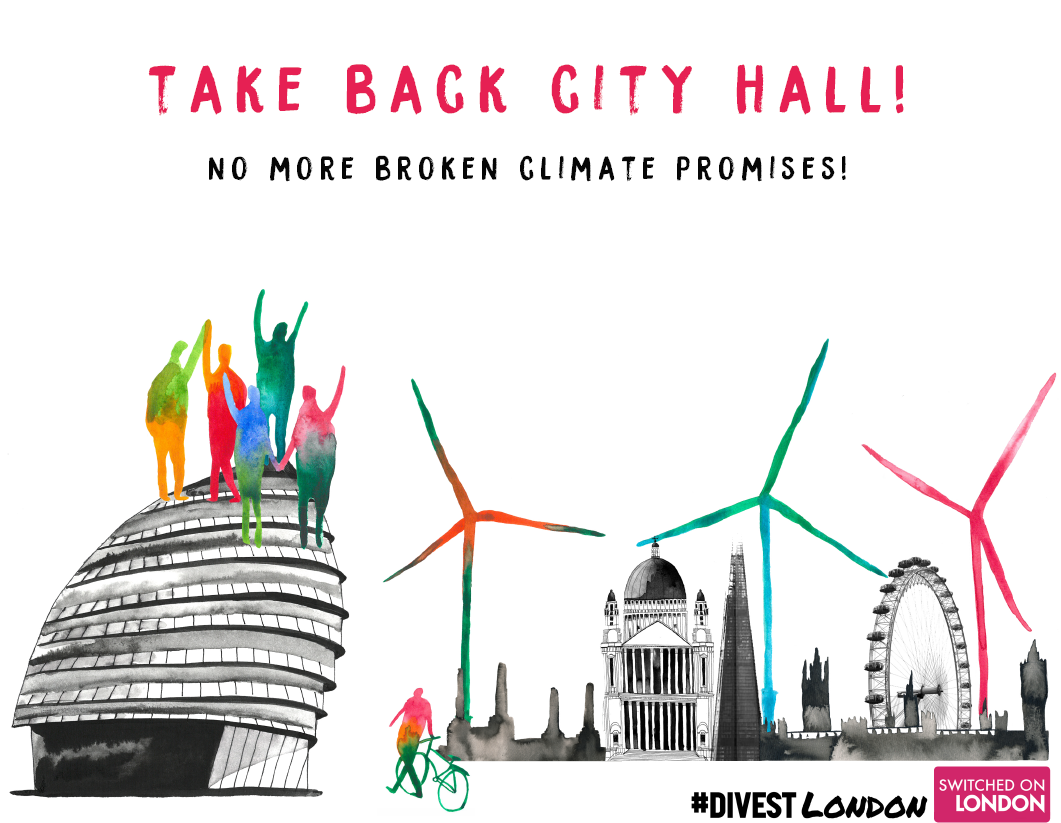PRESS RELEASE: New report shows E.ON’s district heating ‘not fit for purpose’ on regenerated London estate
28/04/17
Embargoed for Sunday 30th April 00:01am
A new report [1] released today and featured on BBC Radio 5 Live Investigates (Sunday 30 April) documents South London residents’ ongoing problems with a new “district heating” system they cannot leave for the next 35 years.
District heating has the potential to cut costs and carbon emissions [2], but for council residents and private leaseholders on the Myatts Field North estate and Oval Quarter development in Lambeth, it has so far been a very bad experience for many from which there is currently no escape.
These residents were connected to a new heat network run by E.ON without proper consultation as part of a controversial regeneration scheme under the Private Finance Initiative (PFI) starting from 2012. Lambeth’s district heating contract with E.ON is binding until 2052.
E.ON promised residents a continuous supply of heat on demand cheaper than traditional gas boilers. They were also promised that smart meters would ensure they were only billed for actual heat and hot water used without the need for manual meter readings.
But this has hasn’t been residents experience. “Not Fit for Purpose” gives more than 50 real-life examples of residents, many vulnerable through age, disability, illness, or financial insecurity, who have experienced a number of failings.
Problems include:
- very high bills that are often based on grossly-exaggerated estimates due to the failure of the smart meters and expensive tariffs with a standing charge of more than £1 a day that have forced some to switch their heating off due to fuel poverty;
- major reliability failings with at least 48 outages over the past four years and some households left for days, weeks, months and even a year without properly functioning heating or hot water, forcing some people to buy electric heaters and pay to shower at a local gym;
- intermittent and variable water temperatures that have forced some households to boil kettles to run baths with one vulnerable resident installing an electric shower due to the unreliability.
- poor customer service and complaint handling with residents having to fight just to get E.ON to take their meter readings, log complaints and provide compensation.
Some concerned residents believe a combination of these failings may have contributed to the tragic death of an elderly man with dementia in October 2016. He had spent months in a state of terrible anxiety over his high estimated bills and felt unsupported by E.ON and the Housing Management. It has been reported that he had difficulties paying the bills and buying food and was found dead with no food in his fridge.
In January this year, the then head of E.ON’s “Heat” division [3] met representatives of three local residents associations, together with Fuel Poverty Action and other concerned parties. He was shocked to hear how bad things were, apologised and promised change.
Since then, there have been a series of specific promises on meter reading, repairs, servicing, and customer service, and the scheme will be among the very first to be audited by the Heat Trust – a voluntary body which offers the heat industry’s own rules in place of the regulation that governs suppliers of gas or power.
However, there are doubts as to the independence of the Heat Trust, a number of the problems continue, and there has been no response to some of the most serious concerns and proposed remedies in the report.
Now residents are challenging E.ON to overhaul the whole system, accept a review of its pricing and provide proper compensation for four years of misery.
Uzoamaka Okafor, Chair of Myatts Field North Residents Association and PFI Monitoring Board, (MFN-RAMB) says:
“It is wholly unacceptable that residents in a newly built £150 million regeneration project should have to endure such poor service delivery especially as unlike other consumers we are unable to switch energy providers to enable choice and better deals. There have been historic failures in delivery of this service with little regard given to resident’s recurrent voiced concerns and lived experiences. Many residents feel powerless and frustrated with what they feel is an absence of accountability from not only E.ON but Lambeth Council. Despite many promises essential change often appears drawn-out and challenging. Regulation is imperative to hold energy providers to account, otherwise customers suffer, particularly the vulnerable.”
The Chair of the private residents’ Oval Quarter Residents Association (OQRA), Mena Rego, says:
“This report encompasses the experiences of a wide and fairly unusual cross section of the community in terms of people who are experiencing fuel poverty on this development. Young professionals, who are first time buyers in Oval Quarter or tenants renting accommodation here, already struggle with the high costs of living in London. Many have been caught completely unaware by the high fixed costs – over a £1 a day – they must pay before using even a single kilowatt of energy to heat their homes or get hot water. Most frustrating is that they cannot take up the constantly trumpeted Government advice to consumers to shop around for a better deal! That is why we are calling for a Fair Heat Price Review to ensure that tariffs are transparent, affordable and value for money.“
Dr Stuart Hodkinson of the University of Leeds says:
“District heating is being embraced by central government, Local Authorities and housing associations around the country. As the Myatts Field North example shows, estate regeneration is increasingly being seen as an opportunity to create new district heating schemes with private energy companies on long-term contracts that lock in residents for decades. If they work and are affordable, this is great. But what incentives do private companies like E.ON have to deliver on price and service when they have a heat and hot water monopoly? The Myatts Field North experience is a wake-up call to government to ensure the heat industry is properly regulated and consumers protected. Our report shows clearly that the PFI model of district heating doesn’t work and we urge government and other bodies to learn the lessons of this worst-practice example.”
Ruth London from Fuel Poverty Action (FPA) [4] comments:
“You wouldn’t buy a car that broke down every 100 miles yet residents have no choice other than to buy expensive heat and hot water from a district heating system that has broken down 48 times in 4 years. E.ON now promise change, but are still ignoring residents’ demands for proper accountability and a price review. Fuel Poverty Action – and many others – believe that as district heating is rolled out across the country there must be a condition on private companies, or councils, receiving public support for new heat networks: they should first have to put right existing networks which they run and are failing to deliver. Together with regulation of the growing Heat Network industry, this would ensure that district heating fulfils its promise of affordable, low carbon heat. And it will mean the end of a nightmare for residents on Myatts Field North.”
CONTACT
Residents and Dr Stuart Hodkinson are available for interview – contact FPA.
Email: fuelpovertyaction@gmail.com
Twitter:@fuelpovaction
Phone: 07751 748 026
NOTES TO EDITOR
[1] The report is entitled “‘Not Fit for Purpose’: Residents’ Experiences of E.ON’s District Heating System on the Myatts Field North Estate and Oval Quarter development in Lambeth”. It has been compiled with additional research by Dr Stuart Hodkinson, School of Geography, University of Leeds, and Ruth London, Fuel Poverty Action on behalf of Myatts Field North Residents Association and PFI Monitoring Board, Oval Quarter Residents Association, and Oval Quarter Notting Hill Residents Association. It will shortly be available to for download here: www.fuelpovertyaction.org.uk/research.
[2] Dubbed ‘central heating for cities’ by the Government, district heating is where heat is pumped into flats from a central source instead of being produced by in the home by a boiler or heater. It has the potential to bring down both costs and carbon emissions. In many places it does so, dramatically reducing fuel poverty, improving health and comfort, and cutting carbon. It is being embraced by central government, Local Authorities and housing associations around the country. See https://www.gov.uk/government/news/new-central-heating-for-cities-to-help-reduce-energy-bills.
[3] Also known as “E.ON Community Energy”. See https://www.eonenergy.com/for-your-business/community-energy/what-is-community-energy.
[4] Fuel Poverty Action is a grassroots group which has been campaigning for five years for an affordable, sustainable and democratic energy system. See https://www.fuelpovertyaction.org.uk/.
# # #



